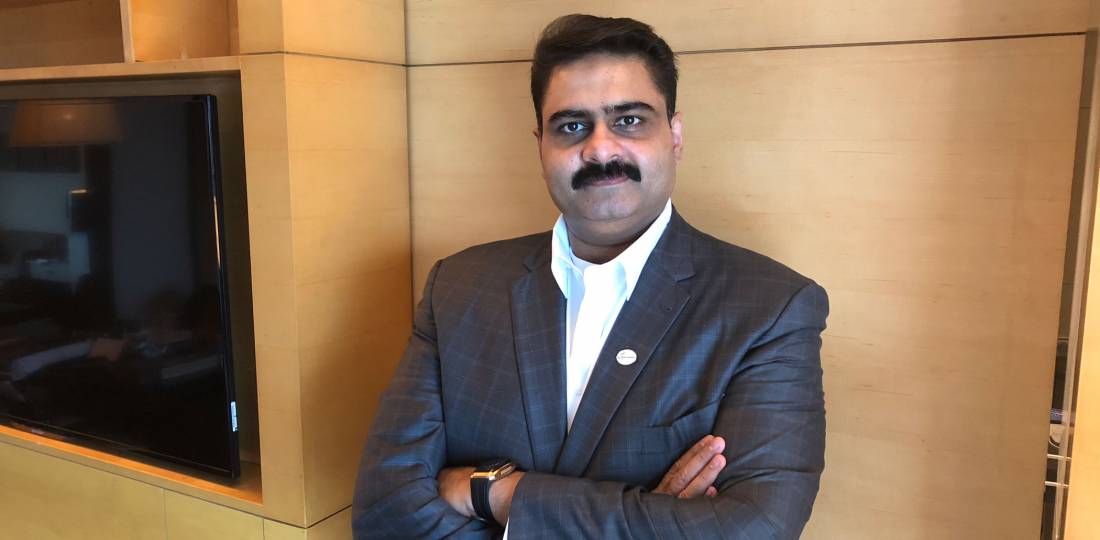After a year of expansion into the U.S. and Europe in 2018, Dubai-based Titan Aviation has added new international AOC and other approvals in the last three years to become a global company, and is looking to more than double its managed fleet to 50 aircraft in the next two years.
“2018 has been a year of expansion,” Sakeer Sheik, managing director, Titan Aviation Group, told AIN during a brief stop in Dubai on the way from the U.S. to India. “Besides physically [moving] into Europe and the U.S., the company has also taken a decision to launch [operations] into Asia-Pacific with immediate effect. Further, a global sales plan is being implemented, with key positions being filled by qualified professionals,” The sales plan covers aircraft management, aircraft sales and charters, he said.
Titan has four international approvals that pave the way for global operations: a U.S. Part 135 charter certificate, a San Marino AOC, a Cayman Private Flight Operations Approval, and an Indian AOC.
“[These approvals give] our clients the best of solutions, based on their region of preference to position their jet. We have owners from different parts of the world, not just India. We are a Dubai-based company and represent owners from the Middle East, Europe, the U.S., and also from India,” he said.
Sheik said he expects fleet size to reach 50 aircraft by 2020. “We have a mixed fleet, the largest being an Embraer Lineage 1000 and the smallest being an Embraer Phenom 100, as well as helicopters. Not every aircraft is available for charter. The Asia and Middle East regions have the majority of our jets, followed by Europe and the U.S. Our owners prefer long-distance, widebody jets. We see [most of the] interest in this category.”
At last year’s NBAA show, Titan claimed to have logged 5,500 revenue hours per year in its charter operations.
He confirmed comment elsewhere in the market that the transition to FBOs at Dubai’s DWC is well underway. “For any operator, services provided by companies like Jetex Flight Support or ExecuJet, for example, are attracting more people to DWC. Some used to use [FBOs in other locations], but then found better facilities at DWC. At least two of our owners [have moved] to DWC. It is a bit more expensive, but with better service levels. The facilities really did attract many new customers,” he said.
“At the end of the day, people who own business jets have their own needs, and specific reasons to use different FBO or airport options. We have found in the last six months that many people are choosing to go into DWC, or around 60 percent of our owners.”
Sheik holds multiple academic and technical qualifications in aviation, including an MBA in Aviation from the U.S., in addition to pilot licenses. “After obtaining my pilot’s license, I set up my own flight school in India in 1995. I then attended Embry-Riddle Aeronautical University, and obtained my second masters in 2002. We launched Titan Aviation in Dubai in 2004.”
Middle East-based air-ambulance operations are limited but are likely to prove rewarding with the recent withdrawal from that market of Abu Dhabi-based charter specialist, Royal Jet. “We are in the process of re-launching [medevac] in the first quarter of 2019,” he said.
The decision of the Indian authorities to open the field up to third-party aircraft management is also an opportunity for Titan Aviation. “This is a great move that happened in a timely manner. I hope external factors don’t come into play in between. We have set up our management business there, and it is strong and growing. It is in a good position in terms of the regulatory requirements,” he said.
“In understanding how the model works, we are in a much better position to take advantage, and take part in sharing what we learned from doing business in Europe and the U.S.”
Sheik is well versed in business aviation activities throughout the Gulf Cooperation Council region. “We manage one aircraft based in Kuwait. Kuwait has good users of the jet and we have been operating there since 2008. Many owners and users prefer to keep their flying habits very private.
“Bahrain has been a good charter market for many years, but with more inbound traffic,” he continued. “We have started seeing an increase of flights into Oman, with Muscat and Salalah being picked up as destinations. This is very promising.”
The Chennai floods in 2015 proved a serious setback to the company, when eight aircraft, including a Global 6000 and a Gulfstream G200, were damaged beyond repair after monsoon rains at Chennai Airport. But Sheik now regards the incident as a pivotal moment in the company’s history.
“Ours was the management company worst affected by the Chennai floods. But I am a strong believer in working harder in the face of adversity. We reassessed the situation and decided to expand into new territories, within India and abroad and went ahead with Europe and U.S. plans.”
“The industry is going through an exciting phase. The mid-2000s saw business-jet sales increase for the first time outside the U.S., but, post-2008, our industry struggled. Now, we see the changes, with the U.S. showing very strong signs of stability. As we all know, our business is very cyclical and, for companies like Titan Aviation, it helps to [run] multiple global locations to offset disturbances in any particular region.”

